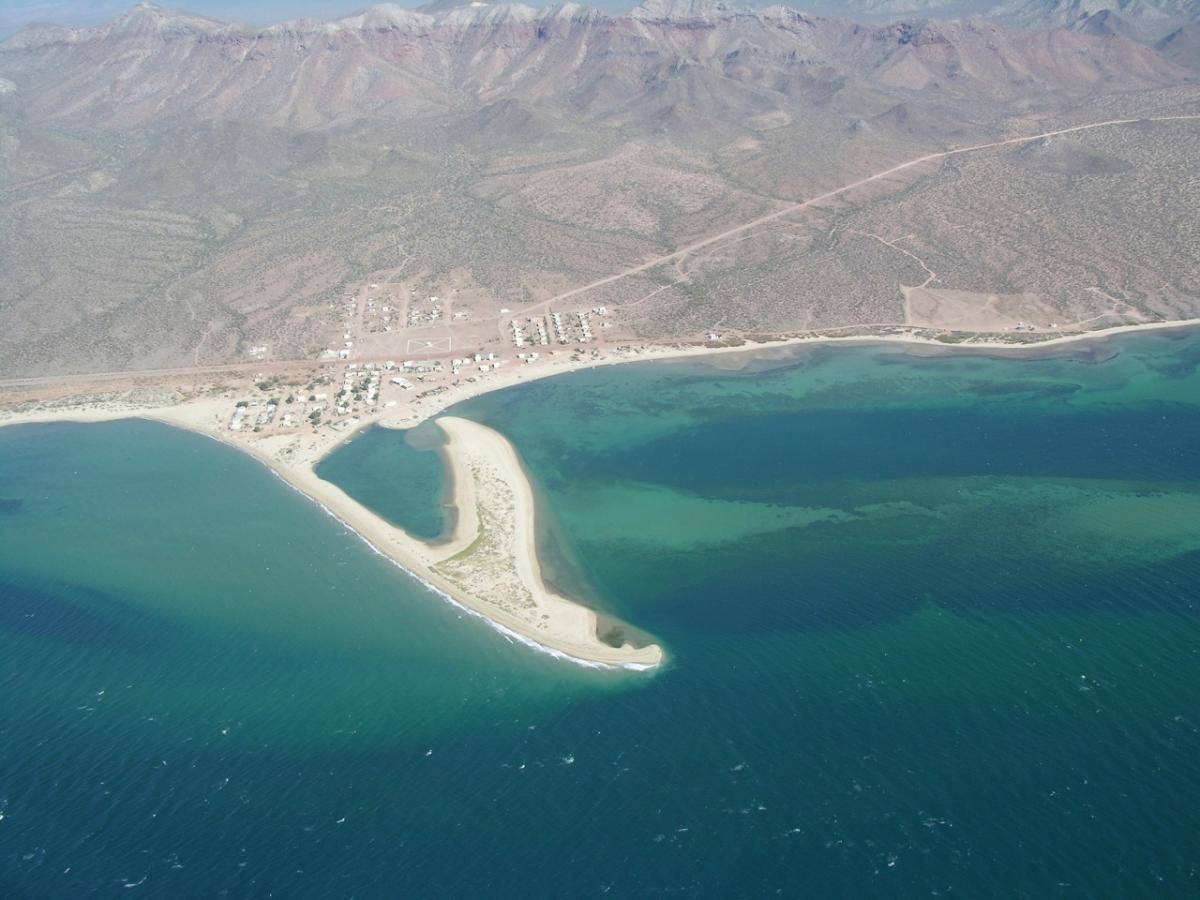NextGen Committee Awards $100,000 to Ducks Unlimited for Blue Carbon Conservation Program and Infrastructure Investments for Indigenous Community in Sonora, Mexico

NextGen Committee Awards $100,000 to Ducks Unlimited for Blue Carbon Conservati…
The NextGen Committee of the Ray C. Anderson Foundation has awarded a $100,000 grant to Ducks Unlimited to support the efforts of its sister organization, Ducks Unlimited de México A.C. (DUMAC), to improve infrastructure and conserve blue carbon through erosion control and protection of 94,016 acres of the Seri First Nation Reservation in the area of Canal del Infiernillo in the mid-Pacific coastal state of Sonora, México.
The NextGen Committee (Committee) is part of the Ray C. Anderson Foundation, an Atlanta-based private family foundation that was formed to celebrate the legacy of Ray C. Anderson (1934-2011), a globally known industrialist turned environmentalist. Anderson’s five grandchildren and their spouses comprise the Committee, which has granted more than half a million dollars to programs focused on climate change mitigation and education since 2014.
Most immediately, the Committee’s grant to DUMAC will allow a team of local engineers and biologists to move forward in partnership with Seri leaders to control erosion and make sanitation infrastructure improvements in the town of Punta Chueca, where 95% of the homes lack running water and 45% of the septic systems are degraded, causing organic runoff that pollutes the surrounding coastal seagrass beds and mangroves.
Project leaders from DUMAC plan to use the majority of the Committee’s grant funds to construct 172 dry toilets and 41 biodigesters, as well as siting an optimal location for a drinking well, to enhance the town’s water quality and boost the wellbeing of the people who live there. DUMAC’s collaborative process will provide jobs and improve the quality of life of residents, while also protecting their valuable, yet vulnerable, coastal shoreline.
The shoreline of the Canal del Infiernillo region is a valuable “blue carbon” sink, in that it has the capacity to sequester an estimated 52,217 metric tonnes of carbon dioxide equivalent (52,217 mtCO2e) per year, if the coastal wetlands are protected. That equates to not burning 5.8 million gallons of gasoline per year.1 The region is rich in biodiversity, serving as a home to 249 species of birds and multiple threatened or endangered species, including five endangered turtle species.
“More and more, we are seeing how environmental and social challenges are intertwined,” said Patrick Lanier, the 2021 chair of the Committee. “This is particularly true when it comes to the climate crisis. With this grant, we see an opportunity to address multiple challenges by improving the livelihoods of the Seri people while also protecting an ecosystem that can sequester many tons of carbon dioxide.”
DUMAC and the Seri community are using this project as a proof of concept for improving human lives and social equity while also protecting local habitat. After the infrastructure improvements are made, DUMAC will collaborate with the Seri people to secure a 15-year conservation agreement to protect their seagrass beds.
“The lessons we learn through this project will be crucial as DUMAC continues to work with other First Nations (Seri and Yaqui) to maximize the conservation of their lands while improving the lives of their people,” said Eduardo Carrera, CEO of DUMAC. “The outcome of this project could guide the success of future ones that increase carbon sequestration and impact the world.”
[1] https://www.epa.gov/energy/greenhouse-gas-equivalencies-calculator
About the NextGen Committee
Ray C. Anderson’s five grandchildren, along with their spouses, comprise the NextGen Committee. The Committee makes recommendations to the Board of Trustees of the Ray C. Anderson Foundation for worthwhile grants and initiatives. The Committee has awarded over half a million dollars in grants related to climate change mitigation and education since 2014.
About Ducks Unlimited de México:
Established in 1974, Ducks Unlimited de México (DUMAC) has restored and enhanced nearly 2 million acres that are important for wintering waterfowl and other wetland-dependent species. DUMAC has classified 27 million acres of wetlands and uplands as part of the Wetlands Inventory Program that guides their conservation efforts. DUMAC's RESERVA program is the first internationally focused, hands-on training program for natural resources professionals in Latin America. With the help of Ducks Unlimited Inc. and several other important partners, RESERVA has trained 652 professionals from Mexico, Central and South America, the Caribbean and Africa.
About Ducks Unlimited:
Ducks Unlimited Inc. is the world's largest nonprofit organization dedicated to conserving North America's continually disappearing waterfowl habitats. Established in 1937, Ducks Unlimited has conserved more than 15 million acres thanks to contributions from more than a million supporters across the continent. Guided by science and dedicated to program efficiency, DU works toward the vision of wetlands sufficient to fill the skies with waterfowl today, tomorrow and forever. For more information on our work, visit www.ducks.org.
Media Contacts:
Valerie Bennett, 770.317.5858, valerie@raycandersonfoundation.org
Emily Austin, 601.206.5463 956.1936, eaustin@ducks.org

